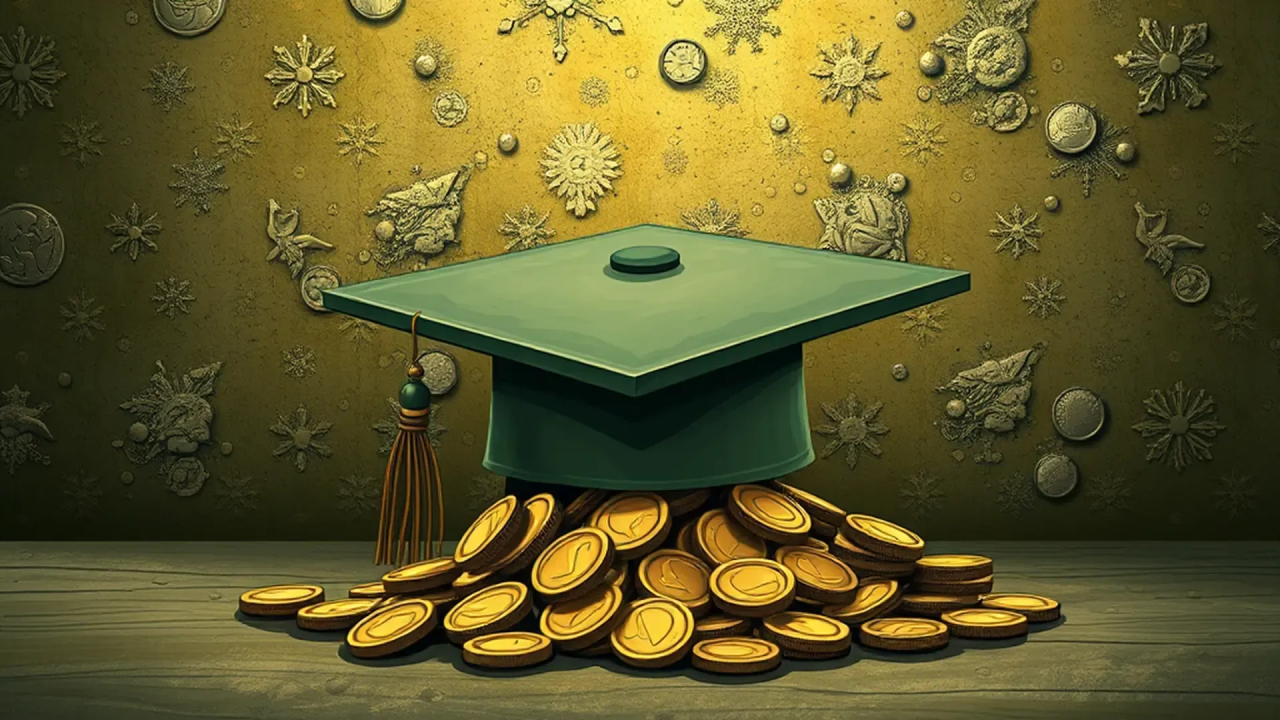How The Student Loan Crisis Will Impact The US Economy

Table of Contents
Reduced Consumer Spending and Economic Growth
High student loan debt significantly limits disposable income, directly impacting consumer spending – a cornerstone of US economic growth. The sheer weight of monthly loan repayments leaves many borrowers with little money left for discretionary purchases. This reduced consumer spending translates into:
- Lower demand for goods and services: Businesses across various sectors experience decreased sales, impacting profitability and potentially leading to job losses.
- Delayed major life purchases: Aspiring homeowners find it challenging to qualify for mortgages, while others postpone purchasing cars or other significant assets. This delay ripples through related industries.
- Reduced investment in other areas like retirement savings: The pressure of student loan repayments often forces individuals to prioritize debt repayment over long-term financial planning, hindering retirement savings and future economic security.
- Negative impact on GDP growth: Reduced consumer spending directly contributes to lower overall economic growth, as measured by the Gross Domestic Product (GDP). This slowdown can have far-reaching consequences for the entire economy.
The consequences of this reduced consumer spending, fueled by crippling student loan debt, are far-reaching and significantly impact economic growth and the overall GDP.
Impact on the Housing Market
The student loan crisis is significantly impacting the housing market, a key indicator of overall economic health. The high levels of student loan debt make it increasingly difficult for young adults to enter the housing market, leading to:
- Difficulty qualifying for mortgages: Lenders consider student loan payments when assessing mortgage applications, making it harder for borrowers to qualify for loans, even with good credit scores.
- Reduced affordability due to loan payments: Existing student loan repayments reduce a borrower's ability to afford a mortgage, limiting their purchasing power and choice of housing options.
- Lower demand for housing, impacting the real estate market: Reduced purchasing power translates into lower demand for housing, impacting prices and potentially leading to a slowdown in the real estate market. This impacts builders, realtors, and related industries.
- Potential for a housing market slowdown: A prolonged period of low demand could trigger a significant slowdown in the housing market, with cascading effects across the economy.
The housing market is inextricably linked to the overall economic health, and the effects of student loan debt are clearly visible in its struggles.
The Ripple Effect on Related Industries
The reduced consumer spending caused by high student loan debt doesn't exist in a vacuum. It creates a ripple effect across various sectors, impacting:
- Retail: Lower discretionary spending translates to decreased sales and potential job losses in the retail sector.
- Automotive: Delayed car purchases directly affect the automotive industry, including manufacturers, dealerships, and related service providers.
- Hospitality: Reduced travel and entertainment spending impacts the hospitality sector, from restaurants to hotels.
These job losses in crucial sectors further exacerbate the economic downturn and contribute to a cycle of reduced economic activity.
Increased Default Rates and Government Burden
The rising student loan default rates are placing an increasing burden on the government. This includes:
- Increased government spending on loan forgiveness programs: The government is increasingly pressured to implement loan forgiveness programs, adding significant strain to the budget.
- Strain on government budgets: Rising default rates directly translate into reduced tax revenue and increased government spending, impacting government spending and potentially leading to budget deficits.
- Potential for higher taxes to cover loan defaults: To address the growing financial burden of student loan defaults, there’s a potential need for higher taxes or reduced spending in other crucial areas.
- Long-term fiscal implications: The long-term fiscal implications of the growing student loan debt crisis are substantial and pose a significant challenge to sustainable government finances. This impacts fiscal policy and necessitates difficult choices.
Impact on Entrepreneurship and Innovation
The weight of student loan debt also discourages young people from pursuing entrepreneurship, a critical engine for economic dynamism and innovation. The fear of financial risk associated with starting a business, combined with limited access to capital, leads to:
- Less risk tolerance due to financial burden: The financial burden of student loan debt makes young adults less likely to take risks associated with starting a business.
- Reduced access to capital for startups: Existing debt can make it harder to secure loans or attract investors for new ventures.
- Negative impact on innovation and economic dynamism: A decrease in entrepreneurship translates into fewer new businesses, reduced job creation, and stifled innovation.
Conclusion
The student loan crisis presents a significant and multifaceted threat to the US economy. Reduced consumer spending, stagnation in the housing market, increased government burden, and dampened entrepreneurship are all interconnected consequences of this crisis. The severity of the issue and its far-reaching consequences cannot be overstated. Understanding the far-reaching consequences of the student loan crisis is crucial. Advocate for responsible policies and solutions to mitigate this growing economic threat. Learn more about the student loan debt problem and its impact on your community.

Featured Posts
-
 Ayndhwfn Yfwz Blqb Aldwry Alhwlndy Mlkhs Almwsm
May 28, 2025
Ayndhwfn Yfwz Blqb Aldwry Alhwlndy Mlkhs Almwsm
May 28, 2025 -
 Tennis Star Sinners Comeback French Open Hopes After Doping Suspension
May 28, 2025
Tennis Star Sinners Comeback French Open Hopes After Doping Suspension
May 28, 2025 -
 Secure Personal Loans With Bad Credit Direct Lenders Offering Up To 5000
May 28, 2025
Secure Personal Loans With Bad Credit Direct Lenders Offering Up To 5000
May 28, 2025 -
 Nl West News Latest On Arraez Dodgers Hot Streak And Diamondbacks Contention
May 28, 2025
Nl West News Latest On Arraez Dodgers Hot Streak And Diamondbacks Contention
May 28, 2025 -
 One Piece A Look At Pirates Who Changed Crews Notable Examples And Their Stories
May 28, 2025
One Piece A Look At Pirates Who Changed Crews Notable Examples And Their Stories
May 28, 2025
